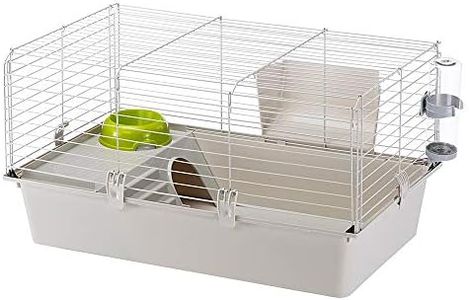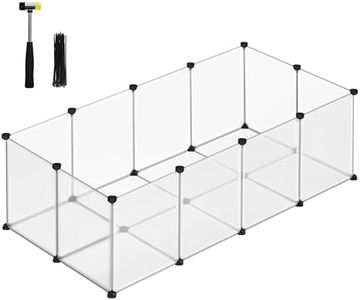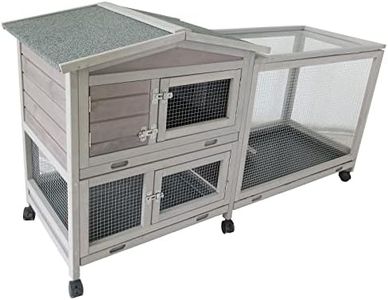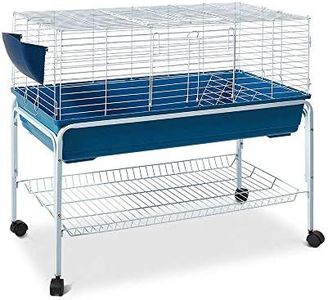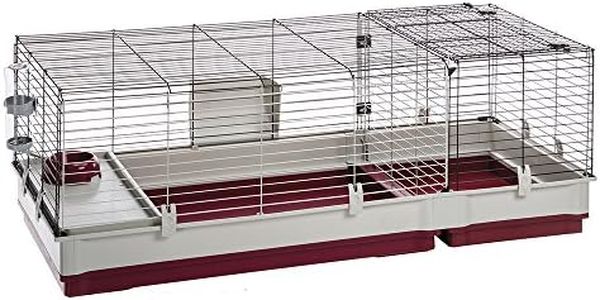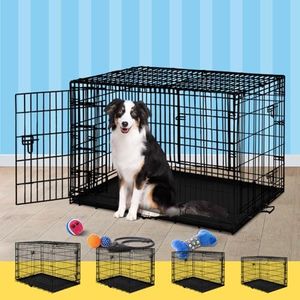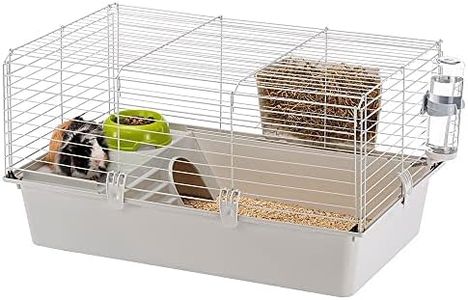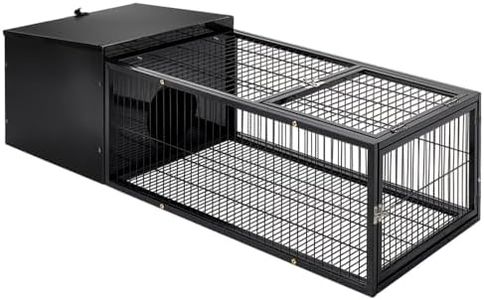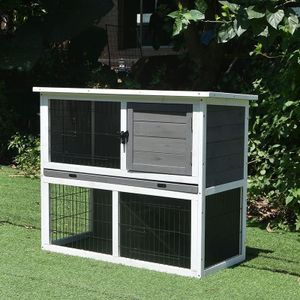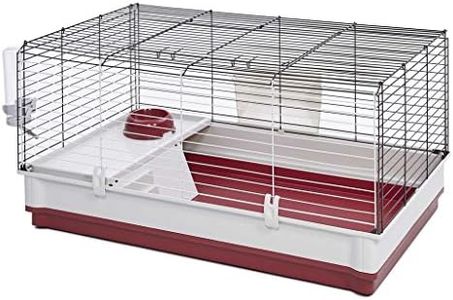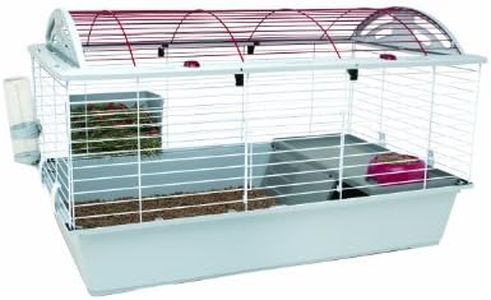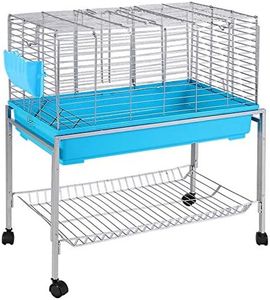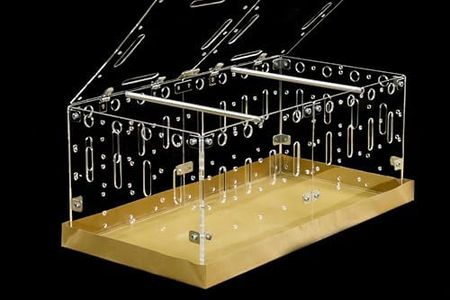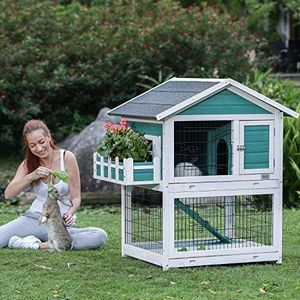We Use CookiesWe use cookies to enhance the security, performance,
functionality and for analytical and promotional activities. By continuing to browse this site you
are agreeing to our privacy policy
10 Best Guinea Pig Cages
From leading brands and best sellers available on the web.By clicking on a link to a third party's website, log data is shared with that third party.
Buying Guide for the Best Guinea Pig Cages
Choosing the right cage for your guinea pig is essential for their health, happiness, and well-being. Guinea pigs need plenty of space to move, play, and exercise, as well as a safe and comfortable environment. When selecting a cage, think about the amount of space you have in your home, how many guinea pigs you plan to house together, and how easy the cage will be to clean and maintain. Your pet's safety, comfort, and ability to express natural behaviors should guide your choice.Cage SizeCage size refers to the overall amount of living space available inside the cage. This is crucial because guinea pigs are active animals that need room to explore and exercise. Cages come in various sizes, often measured in square feet or inches. Small cages may be around 4 square feet and are only suitable for temporary use or one guinea pig, while medium cages (6-8 square feet) are better for a pair but still not ideal. Larger cages (10 square feet or more) are best because they allow more movement, social interaction, and enrichment. Always consider the number of guinea pigs you have—more pets require more space. Aim for a cage that provides room for your guinea pig to roam, play, and avoid crowding.
Floor MaterialThe floor material is what your guinea pig will walk, sleep, and play on every day. Some cages have wire floors, which can hurt guinea pigs' feet and cause health problems, while others have solid plastic or metal bottoms. Solid floors are much better because they are comfortable and safe for delicate feet and make cleaning easier. When looking at options, avoid wire or mesh bottoms and look for smooth, sturdy, and easy-to-clean surfaces. The right choice will help keep your pet healthy and make routine maintenance simpler.
VentilationVentilation describes how much fresh air can flow into the cage. Proper airflow is important to prevent the buildup of odors, moisture, and bacteria, which can make your guinea pig sick. Cages with lots of bar spacing or open panels generally have good ventilation, while enclosed plastic or glass enclosures can trap air and smells. Pick a cage that has plenty of open sides or a wire top, as this will keep your pet more comfortable and healthy while also making it easy to interact with them.
Accessibility and CleaningAccessibility is about how easily you can get into the cage to clean it, feed your pets, and interact with them. Some cages have large doors or tops that open wide, while others may have small openings that make cleaning difficult. You want a cage that's easy to open and reach into—this encourages regular cleaning and care, which is vital for your guinea pig's health. Think about how often you want to clean and how much effort you're willing to put in when selecting this feature.
Cage SecurityCage security refers to how well the cage keeps your guinea pigs safe inside and prevents escapes. Look for cages with secure and sturdy locks, latches, and bar spacing that is too narrow for your pet to squeeze through. This is especially important if you have children or other pets in the house. Good security will give you peace of mind and keep your guinea pig from getting lost or injured.
Expandability and EnrichmentExpandability is the ability to add extra space or connect more sections to the cage in the future. Some cages are modular and allow for expansions and extra accessories, which can give your guinea pigs new areas to explore and play. Enrichment features may include ramps, platforms, hideouts, and tunnels, which help keep your guinea pigs physically and mentally stimulated. If you plan to get more pets later or want to change up your guinea pig's environment, this is a helpful feature to have.
